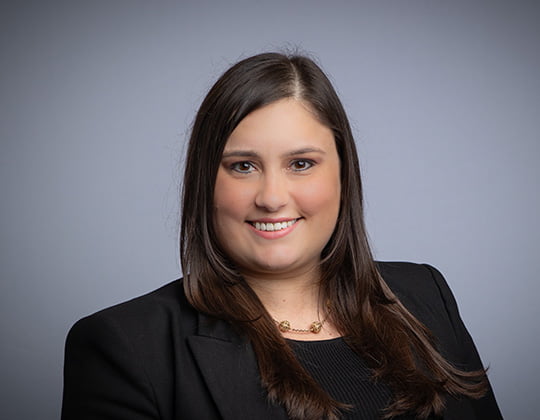With the increase in housing prices, the announcement of the First Home Savings Account (“FHSA”) in 2023 was welcome news for many Canadians. Not only does this type of account allow qualifying individuals to save for their first home purchase, there are also tax advantages associated with contributions into an FHSA. In this article we discuss some key questions related to the FHSA, including at a high level what it is, how it can be used and what happens if an individual dies holding an FHSA.[1]
What is the FHSA?
An FHSA is a registered plan allowing first-time homebuyers to save up to $40,000 in tax-sheltered savings towards the purchase of a first home.
Who is eligible to open an FHSA?
In order to open an FHSA, an individual must:
- be 18 years of age or older;[2]
- be a tax resident of Canada;
- not live in a qualifying home[3] (or what would be a qualifying home if it were located in Canada) as their principal place of residence that they owned or jointly owned in the calendar year or in the previous four calendar years; and
- not live in a qualifying home[4] (or what would be a qualifying home if it were located in Canada) as their principal place of residence that their spouse or common-law partner owned or jointly owned in the calendar year or in the previous four calendar years, or, not have a spouse or common-law partner at the time the account is opened.
How Does an FHSA Work?
An individual’s annual participation room for an FHSA account in the year it is opened is $8,000 and, generally speaking, each year the participation room will increase by another $8,000 up to a total of $40,000. Income earned in an FHSA does not impact unused participation room. Contributions to an FHSA can be made from new contributions (for example, from the individual’s bank account) or can be transferred from an individual’s registered retirement savings plan (RRSP). Subject to the lifetime FHSA limit, up to $8,000 of unused FHSA participation room at the end of the year can be carried forward to the following year. Therefore, if an individual opens an FHSA in 2024 but does not contribute until 2028 the individual will only have $16,000 in participation room ($8,000 of which is made up of unused FHSA participation room).
The contributions to an FHSA are tax deductible and withdrawals from an FHSA can be tax-free (in certain circumstances). An individual may designate a beneficiary or beneficiaries to receive the FHSA on their death. Withdrawals and beneficiary designations are discussed further below.
What happens if there is an overcontribution to the FHSA?
An in-depth discussion of an overcontribution to an FHSA goes beyond the scope of this article; however, generally speaking, if an individual overcontributes to their FHSA, a tax of 1% per month on the highest excess amount in the FHSA in that month will need to be paid until the excess FHSA amount is eliminated. Accordingly, individuals who overcontribute to their FHSA may wish to consider removing the excess amount immediately by, depending on the source of contributions made to the FHSA, making a “designated withdrawal” and/or transferring it to a RRSP or RRIF, in each case on a non-taxable basis. The Government of Canada’s website is a useful resource for more information on overcontribution[5] and if an individual believes they have overcontributed to their FHSA they should obtain proper tax advice from a qualified tax advisor.
How can withdrawals be made from an FHSA to buy a home?
There are requirements that must be met for a withdrawal from an FHSA to be made tax-free (a “qualifying withdrawal”).[6] An individual may withdraw from their FHSA tax-free to buy a qualifying home if they are a first-time home buyer for the purposes of making a withdrawal[7] at the time of withdrawal. It is necessary to have a written agreement to buy or build a qualifying home[8] and there must be the intention to occupy the home as a principal residence within one year of purchase or one year of building the home. To make a qualifying withdrawal the FHSA holder must not have acquired the qualifying home more than 30 days before making the withdrawal.
What happens on death?
Neither contributions nor transfers can be made to a deceased’s FHSA after their death and transfers cannot be made from a deceased individual’s FHSA to another of the deceased’s FHSAs, RRSPs or RRIFs.
While the deceased FHSA holder is not generally required to include any amounts in their income in respect of the fair market value of all the property (i.e., qualified investments) held in the FHSA at the date of their death, there are certain circumstances where amounts may need to be included in the income of the deceased FHSA holder’s estate and/or in the hands of the deceased’s beneficiaries.
Where a deceased FHSA holder has overcontributed to their FHSA there is a tax of 1% per month on the highest excess amount in the FHSA for each month in which there is excess up to and including the month of death. The legal representative of the deceased (e.g., the executor or estate trustee of the deceased’s estate) will need to consider this when administering the estate and ensure the proper amounts are reported and that any taxes owing/penalties are paid.
What happens to an FHSA on an FHSA holder’s death depends on whether or not the FHSA holder designated a beneficiary of the FHSA. If no beneficiary has been designated, the FHSA will form part of the deceased’s estate, increasing exposure to estate administration tax.[9] The Succession Law Reform Act (Ontario) has not been amended to reference FHSAs.
Who can be a beneficiary and what are the implications?
Possible beneficiaries of an FHSA are:
- “survivor” who has been designated as the successor holder (and either is or is not a qualifying individual)
- “survivor” who has been designated as a beneficiary but not as the successor holder (the distinction between designating someone as a successor holder versus a beneficiary is discussed below)
- beneficiary or beneficiaries other than a “survivor” (i.e., any individual such as a family member or friend or a qualified donee such as a registered charity)
- deceased FHSA holder’s estate
Some key terms when discussing treatment of an FHSA following the death of an FHSA holder are as follows:
- A “qualifying individual” is someone who is 18 years of age or older, a tax resident of Canada and a first-time home buyer.[10]
- A “survivor” of a qualifying individual is defined as another individual who, immediately before such qualifying individual’s death, is a spouse or common-law partner[11] of the qualifying individual. For the duration of this article references to “Survivor” refers to this definition.
The options available following the death of an FHSA holder depend on who is designated to receive the FHSA, and the tax consequences will depend on the type of beneficiary and whether there is an excess FHSA amount at the time of death.[12] For example, if a Survivor is a qualifying individual and was designated as the successor holder, then the Survivor becomes the new holder of the FHSA immediately after the death of the original FHSA holder and will be subject to the FHSA rules. Such a Survivor will have to decide, prior to the end of the exempt period (defined below), whether or not they want to keep the FHSA, transfer it directly into their RRSP or RRIF or receive all the property of the FHSA as a taxable withdrawal and close the FHSA. If, however, the Survivor is not a qualifying individual, the Survivor cannot keep the FHSA, and instead must by the end of the exempt period complete a direct transfer to their RRSP or RRIF[13] (on a tax-deferred basis) or receive all the property of the FHSA as a taxable distribution.
The “exempt period” (referenced above) starts on the death of the FHSA holder and ends no later than December 31st of the first calendar year that begins after the FHSA holder’s death. For example, if an FHSA holder dies on June 1, 2024, the exempt period may continue until December 31, 2025.
If a beneficiary other than a Survivor is named (for example, a family member other than a spouse or common-law partner), funds paid to the beneficiary are treated as their income (i.e., taxable to the beneficiary).[14]
If a successor holder or beneficiary has not been designated, amounts from a deceased FHSA holder’s FHSA will be transferred to their estate and treated as income of the estate. It is noteworthy that if a Survivor[15] has a beneficial interest in the deceased’s estate, the legal representative of the deceased’s estate (e.g., the executor or estate trustee) and the Survivor may decide to proceed in one of the following manners:
- The amount may be transferred from the deceased’s estate to the said Survivor’s FHSA, RRSP or RRIF and the legal representative and the said Survivor can jointly designate that the transfer is deemed made from the FHSA instead of the estate so that the transfer will be tax-deferred.
- The amount may be transferred directly to the said Survivor, and the legal representative and the said Survivor can jointly designate that the payment is deemed to be made from the FHSA instead of the estate so that the payment will be a taxable distribution to the said Survivor (not the estate).
For a joint designation to be made, the property from the FHSA must be distributed to the estate before the end of the exempt period.
There are additional considerations if the deceased had an excess FHSA amount.[16]
What are the benefits and limits of an FHSA?
There are many benefits of an FHSA for first-time home buyers including:
- An additional tax-sheltered vehicle to allow for Canadians to save up towards a downpayment for the purchase of their first home.[17]
- The benefits of an FHSA combine the benefits of an RRSP (where contributions to an FHSA are tax deductible) and a Tax-Free Savings Account (where qualifying withdrawals from an FHSA are tax-free).
It is important to note there are some limits to an FHSA. For example, individuals must consider the appropriate time to open an FHSA since an FHSA will cease to exist after 15 years or the end of the year an FHSA holder turns 71 years of age (whichever is earlier). If property remains in the FHSA at the end of this period (the maximum participation period), it will for tax purposes be taxable as income. That said, the FHSA holder may, generally speaking, arrange for a direct transfer of the property from their FHSA to their RRSP or RRIF before the end of this maximum participation period on a tax-deferred basis and without impacting their RRSP contribution room.
Another limit includes that an individual is not permitted to contribute to anyone else’s FHSA. This does not prevent gifts made from one individual to another from being contributed into an FHSA by the gift recipient. Therefore, an individual may, after considering any relevant personal, tax or family law matters, choose to gift funds to their spouse or adult child, for example, who may then choose to contribute such amount to an FHSA (assuming they have participation room available).
An individual must be a Canadian tax resident to make withdrawals tax-free and the investments must be “qualified investments”.[18]
Helpful resources:
For additional information, readers may wish to visit the following Government of Canada websites:
- https://www.canada.ca/en/revenue-agency/services/tax/individuals/topics/first-home-savings-account.html
- https://www.canada.ca/en/revenue-agency/services/tax/individuals/topics/first-home-savings-account/death-and-fhsas.html#h_3_1
The information and comments herein are for the general information of the reader and are not intended as advice or opinion to be relied upon in relation to any particular circumstances. For particular application of the law to specific situations, the reader should seek professional advice.[19]
This article was originally published by the Ontario Bar Association’s Trusts and Estates Law Section on Tuesday, May 28th, 2024.
[1] This article considers the laws of the province of Ontario and the laws of Canada applicable therein.
[2] Provided that an FHSA will cease to exist at the end of the year when an FHSA holder turns 71 years of age if it does not cease to exist sooner.
[3] Section 146.6(1) of the Income Tax Act (Canada) defines a qualifying home as: “(a) a housing unit located in Canada; or (b) a share of the capital stock of a cooperative housing corporation, the holder of which is entitled to possession of a housing unit located in Canada, except that, where the context so requires, a reference to a share with a right to possession of a housing unit described means the housing unit to which the share relates”. A qualifying home includes existing homes and those being constructed.
[4] Ibid.
[5] Specifically, the following website discusses “What happens if you contribute or transfer too much to your FHSAs”: https://www.canada.ca/en/revenue-agency/services/tax/individuals/topics/first-home-savings-account/what-happens-contribute-transfer-too-much.html
[6] Please note that a discussion of other types of withdrawals that do not need to be included in income are beyond the scope of this article. More information on these can be found on the Government of Canada’s website.
[7] This is different than a “first-time home buyer” for the purpose of opening an FHSA.
[8] There are requirements with respect to the timing of the written agreement.
[9] Often referred to as probate tax or probate fees, estate administration tax is currently calculated in Ontario as 1.5% of the value of the assets administered under a Will being probated above $50,000, with the value of the estate being rounded up to the nearest thousand. Although Ontario estates legislation does not specifically refer to the FHSA, estate administration tax is based on the “value of the estate”, being generally the value of all assets owned by the deceased at death. Other registered plans (such as RRSPs, RRIFs and TFSAs) that flow through the estate are included in the calculation of estate administration tax and the writers understand that for Ontario estate administration tax purposes amounts from an FHSA that form part of an estate would be treated the same way.
[10] For the full definition, see the definition of “qualifying individual” at s. 146.6(1) of the Income Tax Act (Canada).
[11] As such term is defined in the Income Tax Act (Canada).
[12] A detailed discussion of the tax consequences goes beyond the scope of this article, in particular with respect to excess FHSA amounts. That said, information on this, with examples, can be found on the Government of Canada’s website on Death and FHSAs. The website can be found in the Helpful Resources section at the end of this article. It is noteworthy that the implications of excess FHSA amounts are relevant to beneficiaries of an FHSA.
[13] Under proposed legislative amendments, a direct transfer on a tax-deferred basis to the Survivor’s FHSA will be another option.
[14] This is different than the situation where a beneficiary other than a Survivor is named as beneficiary of a tax-free savings account (TFSA).
[15] The definition of which can be found above. Essentially, a spouse or common-law partner of the qualifying individual immediately before such qualifying individual’s death.
[16] Supra note 12.
[17] Note that another available tax program is the Home Buyers’ Plan that allows first-time homebuyers to make tax-free withdrawals from their RRSP to help finance the down payment on a home. The 2024 federal budget proposes to raise the limit of this withdrawal amount from $35,000 to $60,000. The budget also proposes to extend the repayment grace period from two to five years. An individual can make a withdrawal from their FHSA and also from their RRSP under the Home Buyers’ Plan so long as they meet the conditions of each type of withdrawal.
[18] See https://www.canada.ca/en/revenue-agency/services/tax/technical-information/income-tax/income-tax-folios-index/series-3-property-investments-savings-plans/series-3-property-investments-savings-plan-folio-10-registered-plans-individuals/income-tax-folio-s3-f10-c1-qualified-investments-rrsps-resps-rrifs-rdsps-tfsas.html.
[19] The authors would like to thank their colleagues, Ryan Morris (tax) and Lucy Main (estates and trusts) for their time and effort in reviewing and providing valuable comments (though any and all errors are solely those of the authors).


